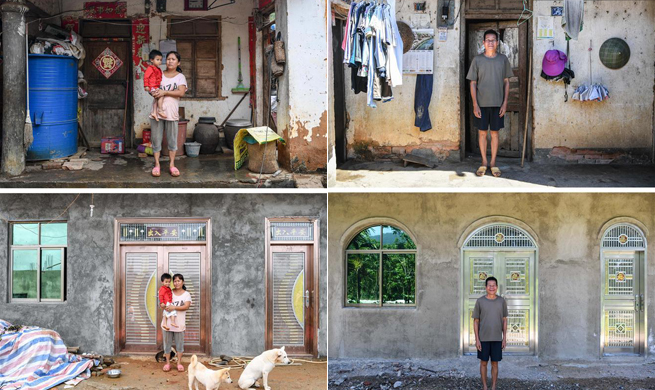TOKYO, May 19 (Xinhua) -- Japan's ruling coalition on Friday used its majority to push a controversial bill that would criminalize the act of plotting terrorist attacks or other crimes of a serious nature through a lower house committee.
There were scenes of mayhem however as the opposition camp fiercely protested the bill being rammed through the committee and there were shouts of protest claiming that deliberations on the controversial conspiracy bill had been wholly insufficient.
The opposition camp was also vociferous Friday in arguing that the contentious bill which the ruling Liberal Democratic Party and its junior partner Komeito aim to get through and enact into law during the current Diet session ending June 18, does not have public support.
The ruling camp may be forced to extend the current parliamentary session as the opposition camp has done everything in its power to delay the process of the unpopular conspiracy bill.
The chaotic committee vote Friday follows a failed no-confidence motion against Justice Minister Katsutoshi Kaneda, which was brought by the main opposition Democratic Party along with three smaller parties, and took aim directly at Kaneda for his mishandling of debate on the issue.
According to the no-confidence motion, Kaneda, who is in charge of deliberations on the bill in parliament, had "continued to display behavior unbecoming of a cabinet minister, having been unable to answer even basic questions, such as whether ordinary people will be targeted by this bill."
Opposition parties have been up in arms about the bill as they believe there remains a significant danger to the privacy of ordinary citizens and the bill, once enacted, could unjustly see civic groups and labor unions punished.
The ruling camp, however, is keen to beef up security ahead of major events scheduled to be held here. When the bill comes into effect, the ruling camp believe it will be able to tackle what Prime Minister Shinzo Abe has described as potential terrorist threats on Japanese soil, associated with the hosting of the 2020 Tokyo Olympics and Paralympics.
Opposition party heads maintain however that a few semantic changes made to the final draft of the bill, which itself has been rewritten numerous times, are not enough for them to sign off on its passage through the lower house.
They have collectively voiced concern that the state would be allowed unprecedented power of surveillance under the new law and could persecute civic groups without clear justification and violate their human rights with impunity.
The ruling bloc maintains that the bill is needed to protect against potential acts of terrorism that may occur during the Olympics in Tokyo, with Abe's administration claiming that the latest version of the bill is less invasive than previous versions that were submitted and failed.
All four major opposition parties, however, remain united in killing the bill and have vowed not to allow it to pass through parliament and into law, stating that the current bill is no different to former iterations submitted to parliament that were subsequently scrapped.
They claim that the bill will erode the integrity of the criminal code in Japan by allowing people to be charged in connections with crimes that have not been committed.
Opponents to the legislation also believe that the scope of the bill is not limited to terrorist groups and could be applied in an arbitrary manner by law enforcement personnel, despite the government's arguments to the contrary.
The government's push for the latest version of the bill to become law is also, purportedly, to ratify the UN Convention against Transnational Organized Crime, which Japan signed in 2000.
The UN convention has been ratified by 187 signatories and Japan's Foreign Minister Fumio Kishida has said that it is essential for Japan to also add its name ahead of hosting the Rugby World Cup in 2019 and the Olympics in 2020.

















